Do you like a bit of spice? Here’s a nice curry paste for you that keeps for months in the fridge. Lots of curry recipes call for a Kashmiri curry paste and this is my quite authentic version.
I’ve tasted quite a few commercial brands of Kashmiri chilli paste and come up with this. It will knock your socks off!
Storing the spices in oil and vinegar like this helps preserve the spices and it retains their flavour for longer than a simple spice curry powder would. This blend can be used whenever garam masala or curry powder are called for in a recipe but it will add quite a lot more spicy heat.
Feel free to amend this in any way. If you really love a spicy Kashmiri style phaal curry, add a few more Kashmiri chillies to the blend. If you aren’t all that keen on really spicy curries, use fewer chillies and perhaps top it up with more cumin and coriander.
It is worth noting that many restaurant curry chefs top up their normal recipes by stirring a spoonful of this in at the end of cooking. As the spices have all been roasted, ground and then fried in oil, the Kashmiri paste is ready to simply be stirred in to taste.
Have fun!
Kashmiri Curry Paste
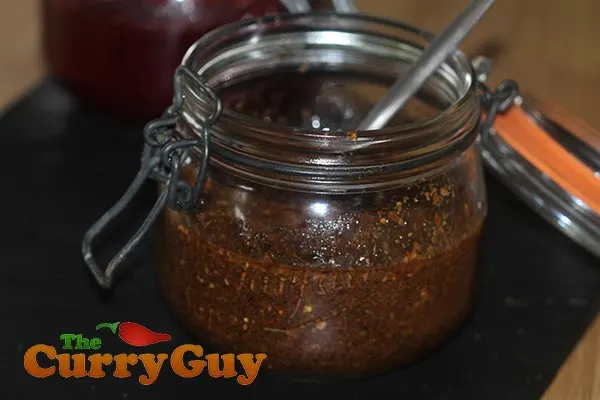
Ingredients
- 4 tablespoons coriander seeds
- 2 tablespoons fennel seeds
- 4 tablespoons cumin seeds
- 1 tablespoon black peppercorns
- ½ teaspoon turmeric powder
- 10 dried Kashmiri red chillies (more or less to taste)
- 2 tablespoon fenugreek seeds
- 1 x 3cm cinnamon or cassia stick
- 3 Asian bay leaves or western bay leaves
- 100ml white wine vinegar
- 150ml vegetable oil (plus more if required)
- Salt to taste (I usually leave it out and add salt when cooking)
Instructions
- Heat a frying pan over medium high heat.
- Pour the whole spices into the pan and roast until warm to the touch. The spices may smoke a bit but they really only need to get warm and fragrant to be ready.
- Remove the spice from the heat to cool on a plate and then place the spices in a spice grinder or pestle and mortar and blend to a fine powder.
- In a frying pan, mix this powder with about 100ml of water and stir into a paste.
- Pour the oil into the pan, and turn your burner on to medium high.
- Stir continuously until the spices begin to sizzle a bit and the oil all rises to the top. 30 seconds to a minute should be enough as you have already roasted the spices.
- Turn off the heat and add the vinegar and stir it all up nicely. Spoon the spice mixture into a very clean preserve jar with an air tight lid.
- This will keep in the fridge for at least three months. Use as required.
Recommended Products
As an Amazon Associate and member of other affiliate programs, I earn from qualifying purchases.
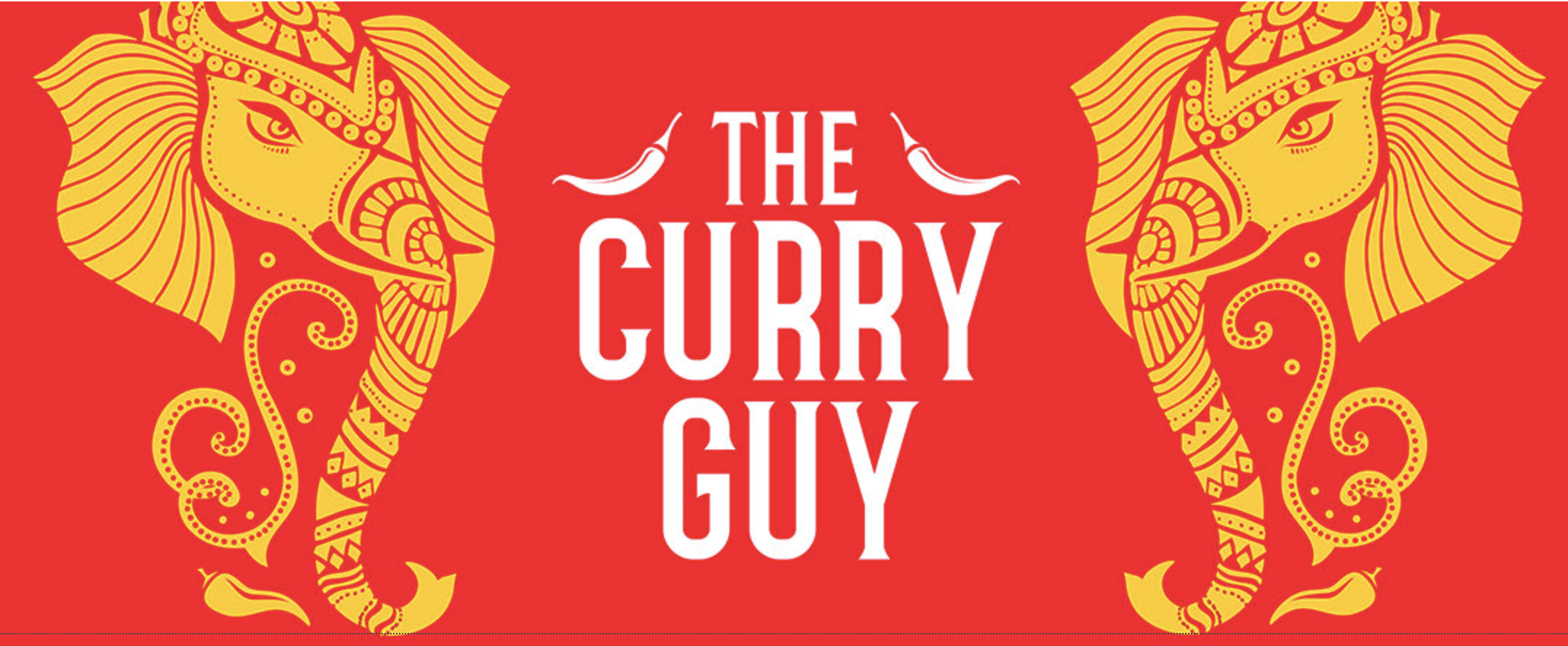

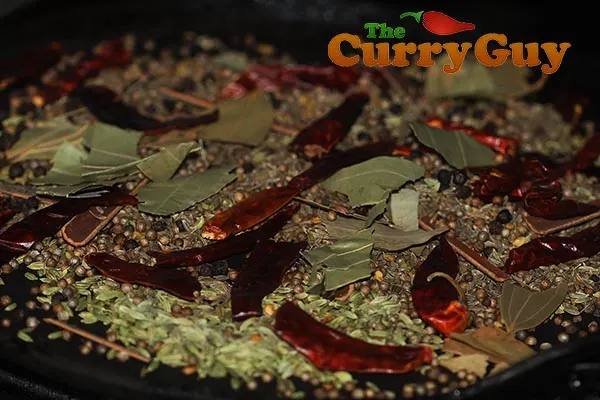
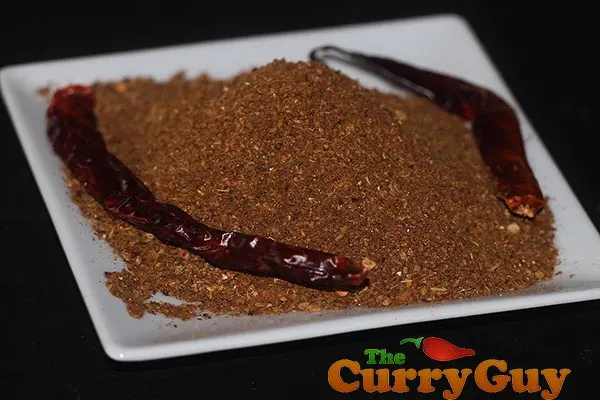
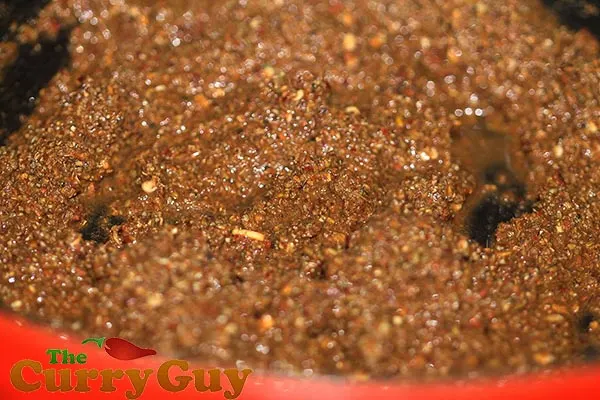
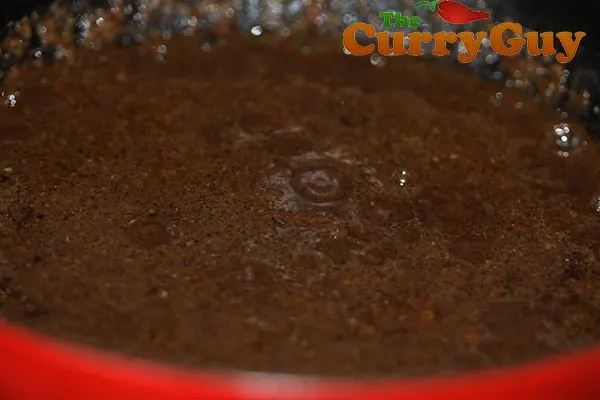
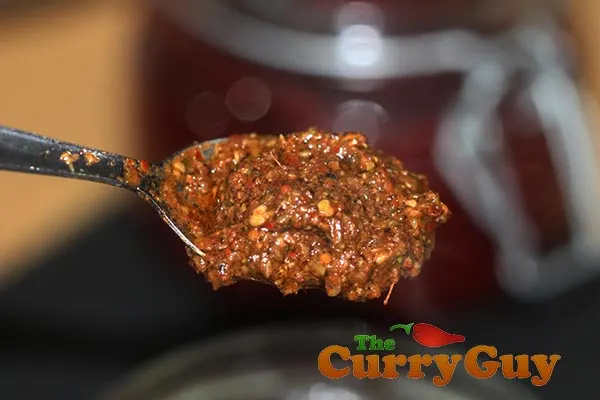
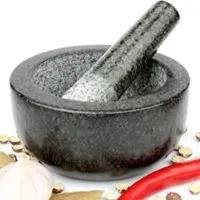
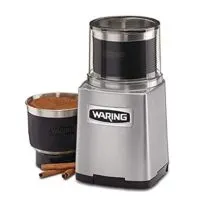
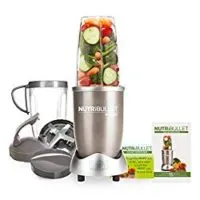
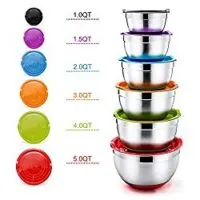
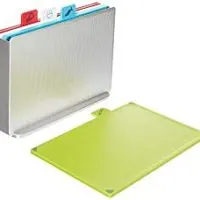
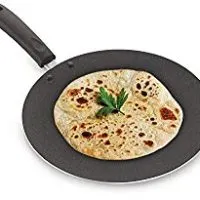
Gary alderson
Saturday 27th of June 2020
Just made the curry paste, seems to taste nice already ! 👍 downloaded your app too. Look forward to using the paste and your recipes. Thanks Gary
Angela
Wednesday 9th of September 2020
I’m giving this recipe a try thank you very much for posting it. I had to substitute Feruigreek leaves for Feruigreek seeds. I don’t know if that’s allowable, good thing I won’t know the difference since this is the first time I have tried this curry.
Dan Toombs
Friday 3rd of July 2020
Thanks very much, Gary Dan
Andy
Sunday 9th of September 2018
What happens to the bay leaves? Do you roast and grind those too?
Dan Toombs
Wednesday 19th of September 2018
Hi Andy
I must have left that out. Sorry. Just grind them. No need to roast.
Thanks, Dan
Nokudos
Friday 17th of June 2016
Can you use kashmiri chilli powder instead of whole chillies and if so how much?
Dan Toombs
Friday 8th of July 2016
Hi Nokudos
You can but it is really a personal thing. If you like spicy food, use a lot, if not use less. Just experiment and you'll get there in the end.
Dan
Neil Beckett
Thursday 14th of August 2014
Hi Dan,
So your saying we don't actually need to "roast" these spices, just warm them through?
Thanks, Neil.
Dan Toombs
Tuesday 2nd of September 2014
Hi Neil
I learned this a couple of years ago. Roasting is fine but most chefs just warm them through. This is enough to release the oils within the spices.
Dan
bob ferris-pike
Sunday 29th of June 2014
hi,what do you mean by sort on the vinegar,thanks.
Dan Toombs
Tuesday 1st of July 2014
Any strong vinegar will do Bob. I usually just use white or red wine vinegar though.
Dan